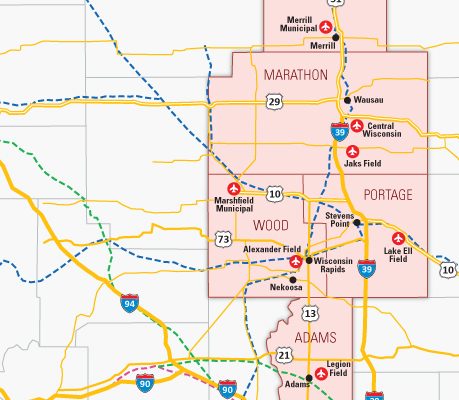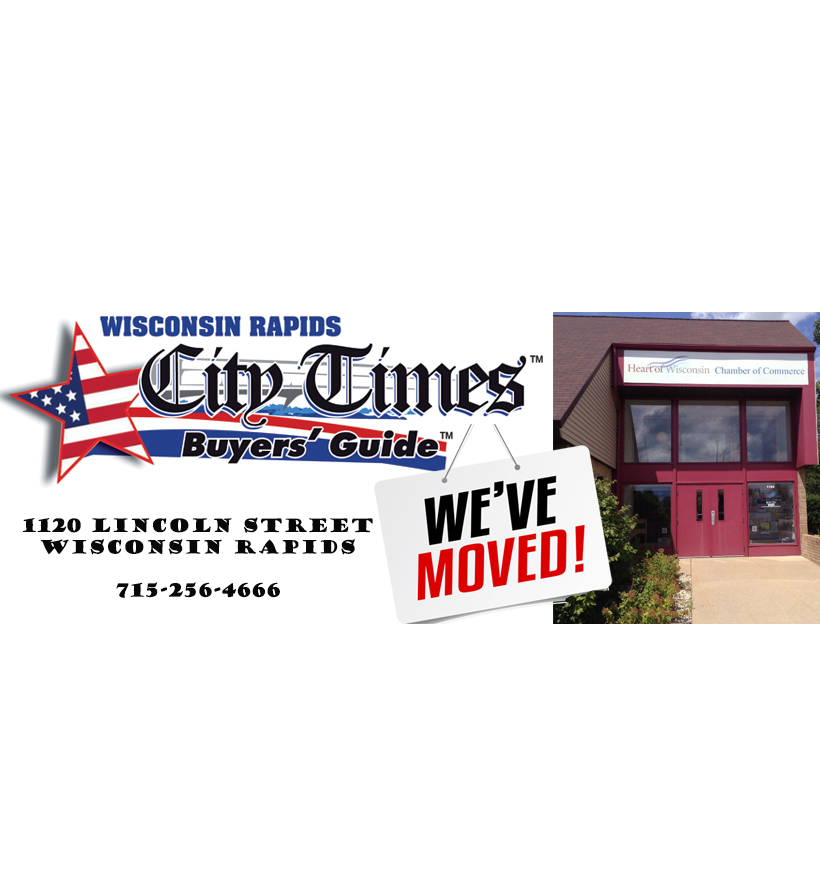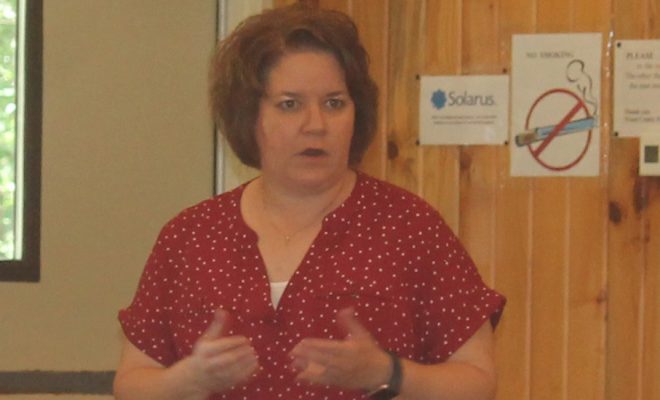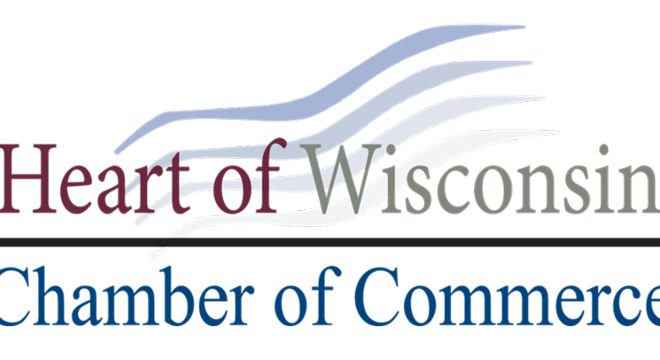Converging on the Capitol
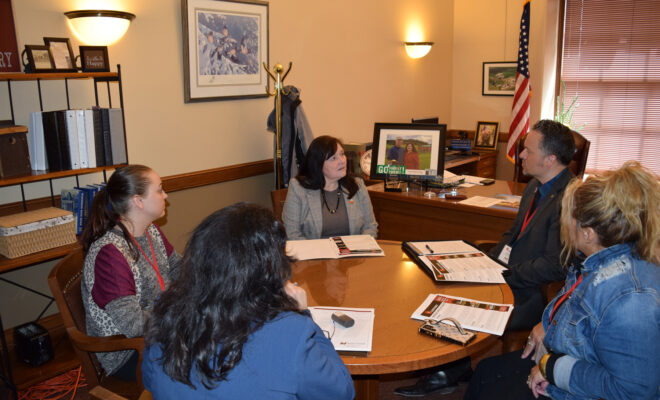
BY MIKE WARREN
MADISON – Business, industry and education leaders from central Wisconsin spent a recent afternoon taking their top issues directly to those in the best position to do something about them – state lawmakers.
Centergy hosted Central Wisconsin Days April 4-5 in Madison, featuring 30-minute sessions with area lawmakers or their representatives at the state capitol.
“The reason why we host this event is for the opportunity for our business community to really have a voice down here at the capitol,” said Centergy President/CEO Angel Whitehead. “We’re one of the only groups that do it, and if we’re not telling our legislators what’s happening in our communities and how our businesses are being impacted or hurting, who’s going to tell them? We need to bring those voices down here,” she added.
Centergy has hosted the annual event for nearly two decades. This year, nearly 100 residents met with lawmakers to inform them about current high-priority, public policy issues that impact economic development in central Wisconsin, namely housing, childcare, and tax reform.
An overwhelming need for childcare was identified by the groups. A shortage of childcare has left many parents/guardians with no other option than to remain home to care for their children, and not return to the workforce post-pandemic.
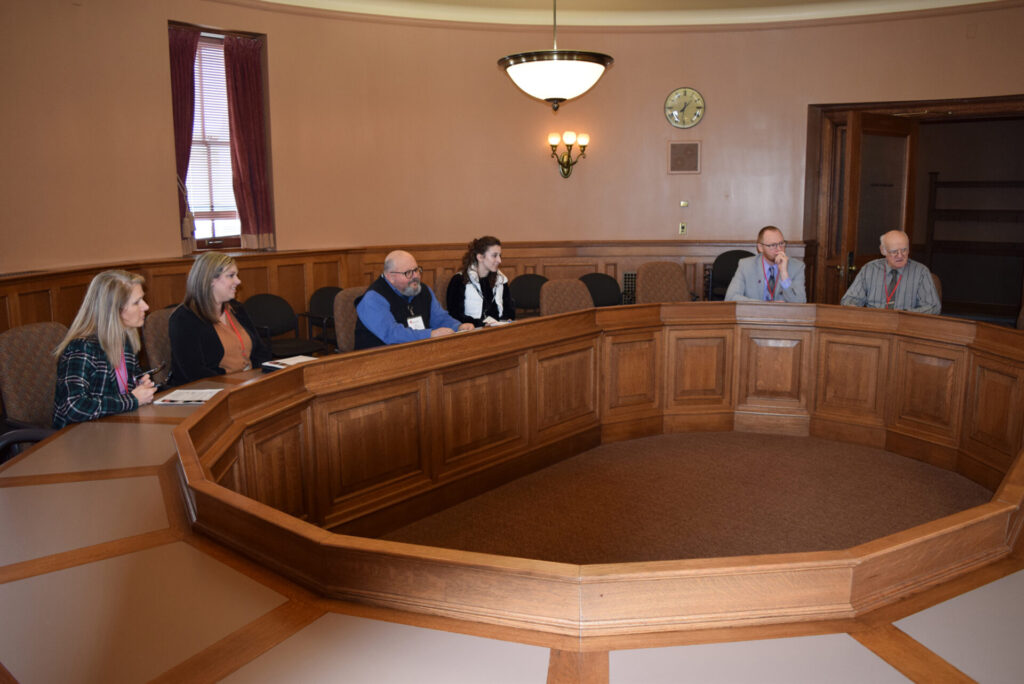
In speaking with John Reinemann and Maryna Oliinyk, staff to Rep. Scott Krug, Staci Kivi from the Heart of Wisconsin Chamber of Commerce in Wisconsin Rapids spoke of waiting lists for childcare centers. Among the major concerns if a lack of childcare continues to persist is an out-migration of young families who leave to find gainful employment where care is readily available.
Kyle Kearns, Director of Community Development for the city of Wisconsin Rapids, took the issue a step further.
“Moreover, when you think about a solution, you look at the certification process for a family daycare facility is nine to twelve months,” Kearns noted. “Is there a way we can reduce that to get them up and operating so it’s not a detriment to their operation? Or is there a way we can provide some assistance if they need a fence or something? I mean, that’s burdensome for a small daycare to cover the cost for a three-to-four-thousand-dollar chain-link fence,” Kearns added. “Just trying to think outside of the box on ways we can break down these barriers to maybe get more people to think about how they can start these family daycare facilities and meet that need.”
Coincidentally, Rep. Krug was not able to meet with the group because of a childcare issue within his own family.
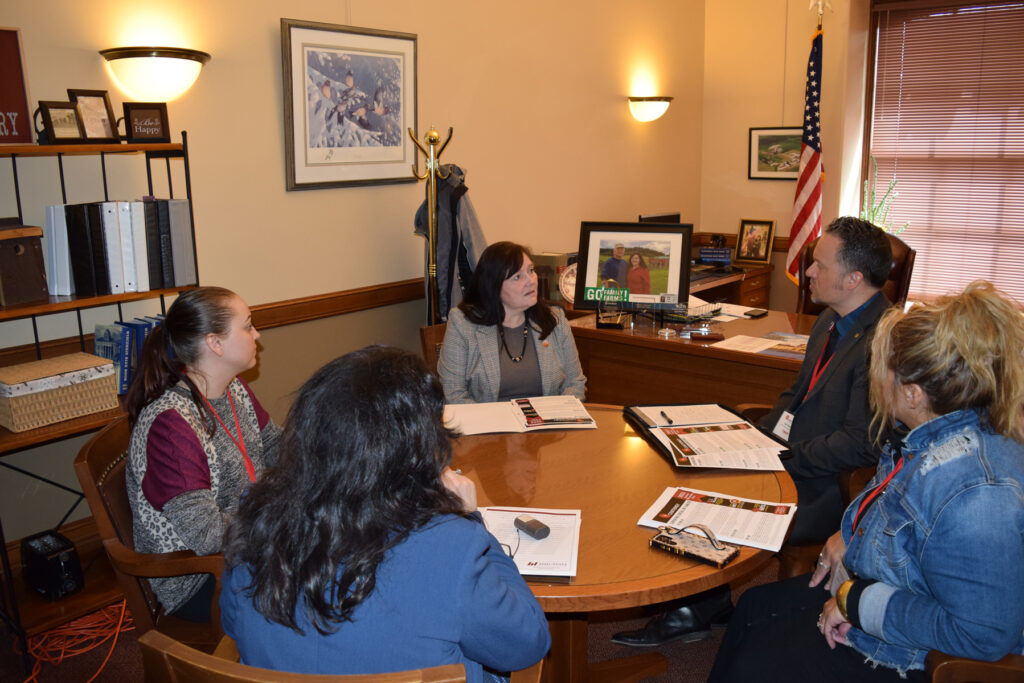
Housing was also identified by the group as a major issue. “An increase in single and multi-family housing stock in the Centergy region is directly related to our ability to recruit and retain people in the prime working ages of 25-64,” according to a Centergy press release.
“The cost of new housing has just continued to escalate and other factors have kind of compounded that, some of which are people wanting to stay in their homes longer, which is a good thing, but it also reduces supply,” City of Wisconsin Rapids Associate Planner Carrie Edmondson told Krug’s representatives. “Families have gotten smaller,” she added. “There’s less people in housing units. So, Centergy’s ask is to support state policies, regulations and statutes that encourage local innovation, incentivize the creation of buildable lots, expand mixed-use TID options, extend the life of TIF districts, making the affordable housing provisions last longer, (and) to encourage in-fill.”
The group also encouraged legislative efforts to increase the annual amount of low-income tax credits certified by WHEDA, with 35 percent set aside for rural communities with populations under 10,000.
The third topic the Centergy groups advocated for was tax and revenue reforms.
“State sales and income tax have tripled in the last 30 years. Unfortunately, that additional tax hasn’t trickled down to local police, fire, EMS and other services,” Kearns noted. “So, there are a number of things that I think we’re advocating for that can be done to ensure that that tax burden on businesses is reduced,” he added.
The Centergy groups were asking for legislators to consider initiatives that would lower the top marginal personal income tax rates, eliminate the personal property tax for businesses and maintain the Manufacturing and Agriculture Credit at its current level. They also encouraged legislative support for reforming the state’s shared revenue formula for local governments.
Aside from Rep. Krug’s office, Centergy advocacy groups were also able to meet with Representatives Nancy VanderMeer, Katrina Shankland and Donna Rozar, along with Senators Patrick Testin and Jesse James.
“I’ll be following up with the legislators we met with, see what kind of bills are out there, what’s happening on the floor at this time and what are our next steps so we can keep advocating for these issues and making an impact,” Whitehead said at the end of the day.
Centergy is a regional economic development organization representing a five-county region in central Wisconsin, and is based in Wausau. The organization is focused on promoting central Wisconsin to help attract, retain and develop talent and businesses in the counties of Wood, Adams, Portage, Lincoln and Marathon.

